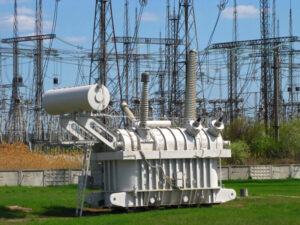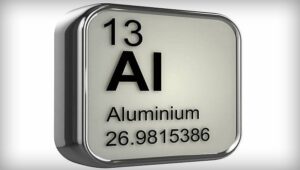
In January-October of this year, Ukraine increased imports of aluminum ore and concentrate (bauxite) in physical terms by 58% compared to the same period last year, to 31,344 thousand tons.
According to statistics released by the State Customs Service (SCS) on Wednesday, during this period, bauxite imports in monetary terms increased by 31.2% to $3.518 million.
At the same time, imports were mainly from Turkey (80.96% of supplies in monetary terms), China (16.66%), and Guyana (2.39%).
Ukraine did not re-export bauxite in 2025, as in 2024 and 2023.
As reported, in 2024, Ukraine increased its imports of bauxite in physical terms by 77.4% compared to 2023, to 35,173 thousand tons, and in monetary terms by 74%, to $4.107 million. Imports were mainly from Turkey (78.48% of supplies in monetary terms), China (19.48%), and Spain (1.9%).
In 2023, Ukraine imported 19,830 thousand tons of bauxite worth $2.360 million.
In 2022, Ukraine reduced imports of aluminum ores and concentrates (bauxite) in physical terms by 81.5% compared to the previous year, to 945,396 thousand tons. Bauxite imports in monetary terms decreased by 79.6% to $48.166 million. Imports were mainly from Guinea (58.90% of supplies in monetary terms), Brazil (27.19%), and Ghana (7.48%).
Bauxite is an aluminum ore used as a raw material for producing alumina, which is then used to produce aluminum. It is also used as a flux in ferrous metallurgy.
Bauxite is imported into Ukraine by the Mykolaiv Alumina Plant (MAP).

Imports of electric telephone or telegraph apparatus and videophones (UKTZED 8517) to Ukraine in January-October increased by 26.9% compared to the same period in 2024, reaching $1.28 billion, according to statistics from the State Customs Service.
According to statistics, the largest volume of these products was imported from China (55.3%, or $706.2 million), Vietnam (15.2%, $194.5 million), and the United States (8.4%, $107 million). Last year, it was also China (63.7%, $640.5 million), Vietnam (16.3%, $163.5 million), and the United States (4.3%, $43.2 million).
In October this year, Ukraine imported telephone and telegraph equipment worth $152.04 million, which is 48% more than a year ago.
At the same time, exports of these products from Ukraine in January-October 2025 reached $100.9 million, which is 38.3% more than in the first 10 months of last year. Supplies were mainly to Hungary (71%), Poland (24%), and the Netherlands (less than 1%). During the same period in 2024, products were exported mainly to the same countries, but Hungary’s share was 60.8%, Poland’s 30%, and the Netherlands’ 4%.
According to the State Customs Service, in 2024, telephone or telegraph apparatus and videophones worth almost $1.26 billion were imported into Ukraine, which is 10% more than in 2023.

In January-October 2025, Ukraine imported 24,295 tons of pork worth $61.554 million, which is 11.5 times (2,120 tons) more than in the same period of 2024, according to statistics from the State Customs Service.
According to the published statistics, the top three suppliers of pork to Ukraine during the reporting period were Denmark, which accounted for 58.62% of supplies worth $36.08 million, Poland (18.29%, $11.26 million), and the Netherlands (8.54%, $5.26 million).
At the same time, pork exports for the first 10 months of this year amounted to 2,152 thousand tons worth $6.42 million, which is 15.7% (2,554 thousand tons) less than in the same period last year.
In addition, Ukraine increased imports of lard, pork fat, and poultry fat by 28.9% in January-October, to 15,672 tons worth $18.085 million.
The top three suppliers of lard to Ukraine in 2025 were Poland (66.86%, $12.091 million), Germany (12.92%, $2.337 million), and Spain (9.79%, $1.886 million).

The volume of imports of transformers, inductors, and chokes to Ukraine in January-October 2025 increased by 95.3% compared to the same period in 2024, reaching $875.8 million, according to statistics from the State Customs Service.
According to the published data, China remains the largest supplier of these products to Ukraine. During this period, $738.3 million worth of these products were imported from China (84.3% of all imports of these goods), while a year ago, $299 million worth of transformers and chokes were imported from this country (66.7%).
In addition, transformers were imported from Germany ($42.6 million) and Turkey ($18.6 million), while in January-October 2024, imports from Turkey amounted to $49.4 million, and from Germany – $12 million.
In particular, in October 2025, supplies of this equipment to Ukraine increased by 31.8% compared to October 2024, to $98.7 million, which is only 3% compared to September of this year.
Since the beginning of this year, as reported, the volume of transformer imports has significantly exceeded last year’s figures—in particular, in January, their imports increased sixfold, but the growth rate gradually slowed down and at the end of the first half of the year was 2.6 times higher than in January-June 2024, and 2.1 times higher in the first nine months.
According to the State Customs Service, Ukraine exported transformers, inductors, and chokes worth $28.6 million in the first 10 months of this year, compared to $28.5 million in the same period last year, mainly to Germany, Hungary, and Slovakia.
As reported with reference to the State Customs Service, imports of transformers, inductors, and chokes to Ukraine in 2024 more than doubled compared to 2023, reaching $596.11 million, with imports from China increasing 2.5 times to $400.48 million.

The volume of passenger car imports to Ukraine, including cargo-passenger vans and racing cars (UKT ZED code 8703), in January-October 2025 amounted to almost $4.82 billion, which is 32.6% more than in the same period of 2024 ($3.63 billion) and 10% more than in the whole of 2024.
According to statistics released by the State Customs Service of Ukraine, the growth rate of passenger car imports has thus accelerated, reaching 27.4% in the first nine months of the year compared to the same period in 2024.
In October this year, passenger cars worth $647.8 million were imported into Ukraine, which is 81% more than in October last year.
The top three suppliers of cars to Ukraine in January-October this year were Germany, the US, and China, while last year they were the US, Germany, and Japan. In particular, car deliveries from Germany increased by 52% to $841.3 million, and their share in the structure of car imports was 17.45% compared to 15.23% a year earlier.
Cars worth $839.7 million (25.4% more) were imported from the US to Ukraine, and $663 million (13.8% of passenger car imports) from China. Last year, imports from Japan, which was among the top three leaders, amounted to almost $430 million (11.8%).
Imports of passenger cars from other countries during the period amounted to $2.476 billion, compared to $1.981 billion in January-October 2024.
At the same time, in the first 10 months of this year, Ukraine exported only $7.17 million worth of such vehicles, in particular to the UAE, Canada, and the US, while a year ago, during the same period, the country supplied $9.33 million worth of such vehicles to foreign markets, mainly to Canada, Germany, and the US.
According to the State Customs Service, in the overall structure of imports of goods to Ukraine in January-October 2025, the share of passenger cars was 7.1% (6.3% last year), and in the structure of exports – 0.02% (0.03%).
As reported, in 2024, passenger cars worth $4.385 billion were imported into Ukraine, which is 8% more than a year earlier, and $10.1 million worth were exported (2.7 times less).

In January-October 2025, Ukraine increased imports of aluminum and aluminum products by 14.8% to $432.08 million, while exports grew by 21.4% to $128.14 million.
In October, aluminum imports amounted to $42.85 million, and exports amounted to $15.71 million.
For comparison, in 2024, aluminum imports increased by 21.7% to $446 million, and in 2023, by 7.7% to $366 million.
Aluminum is widely used as a structural material. The main advantages of aluminum are its lightness, malleability, corrosion resistance, high thermal conductivity, and the non-toxicity of its compounds.
In particular, these properties have made aluminum extremely popular in the production of kitchenware, aluminum foil in the food industry, and for packaging. The first three properties have made aluminum the main raw material in the aviation and aerospace industries (recently, it has been replaced by composite materials, primarily carbon fiber). After construction and packaging production—aluminum cans and foil—the largest consumer of metal is the energy industry.